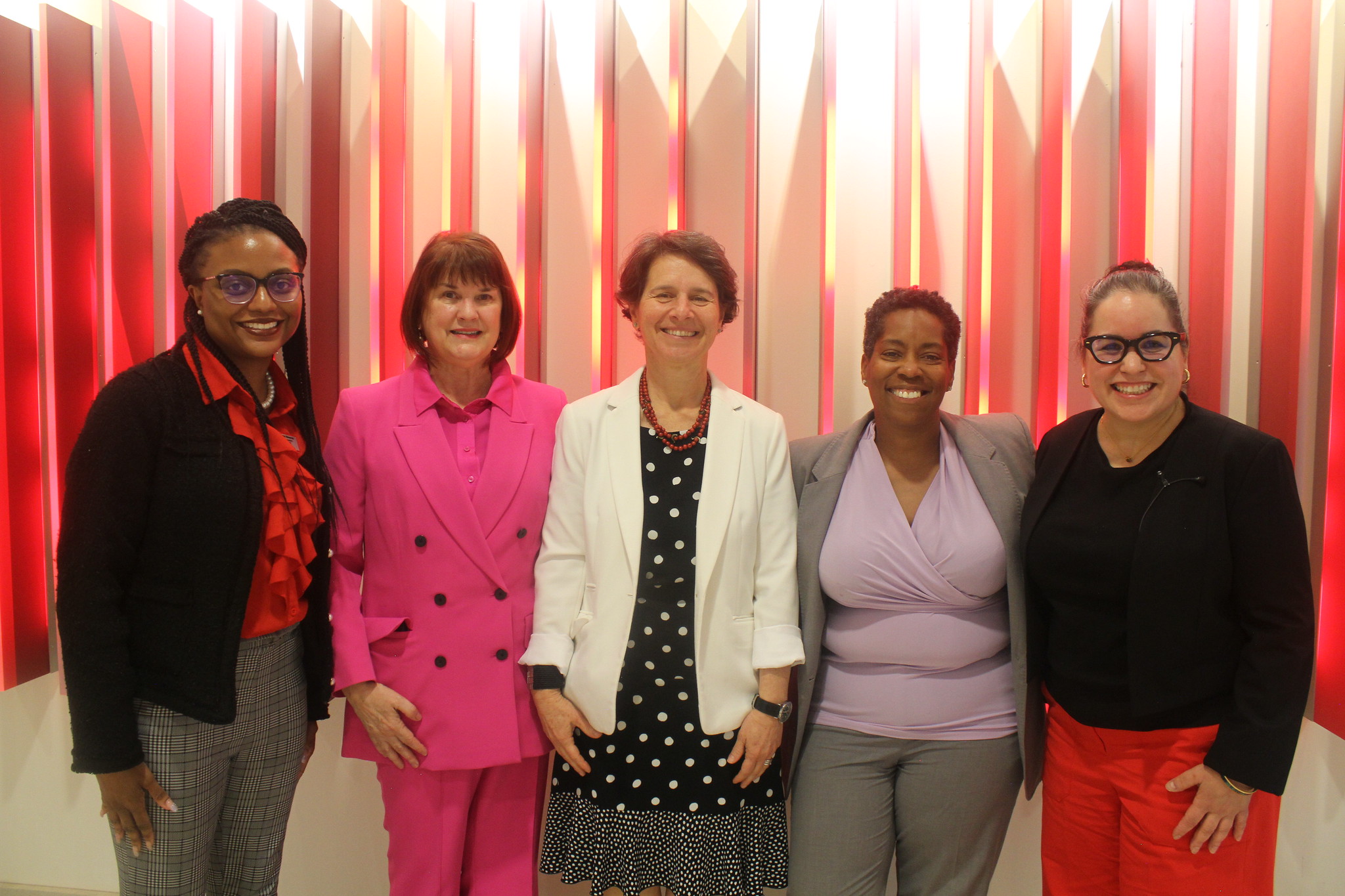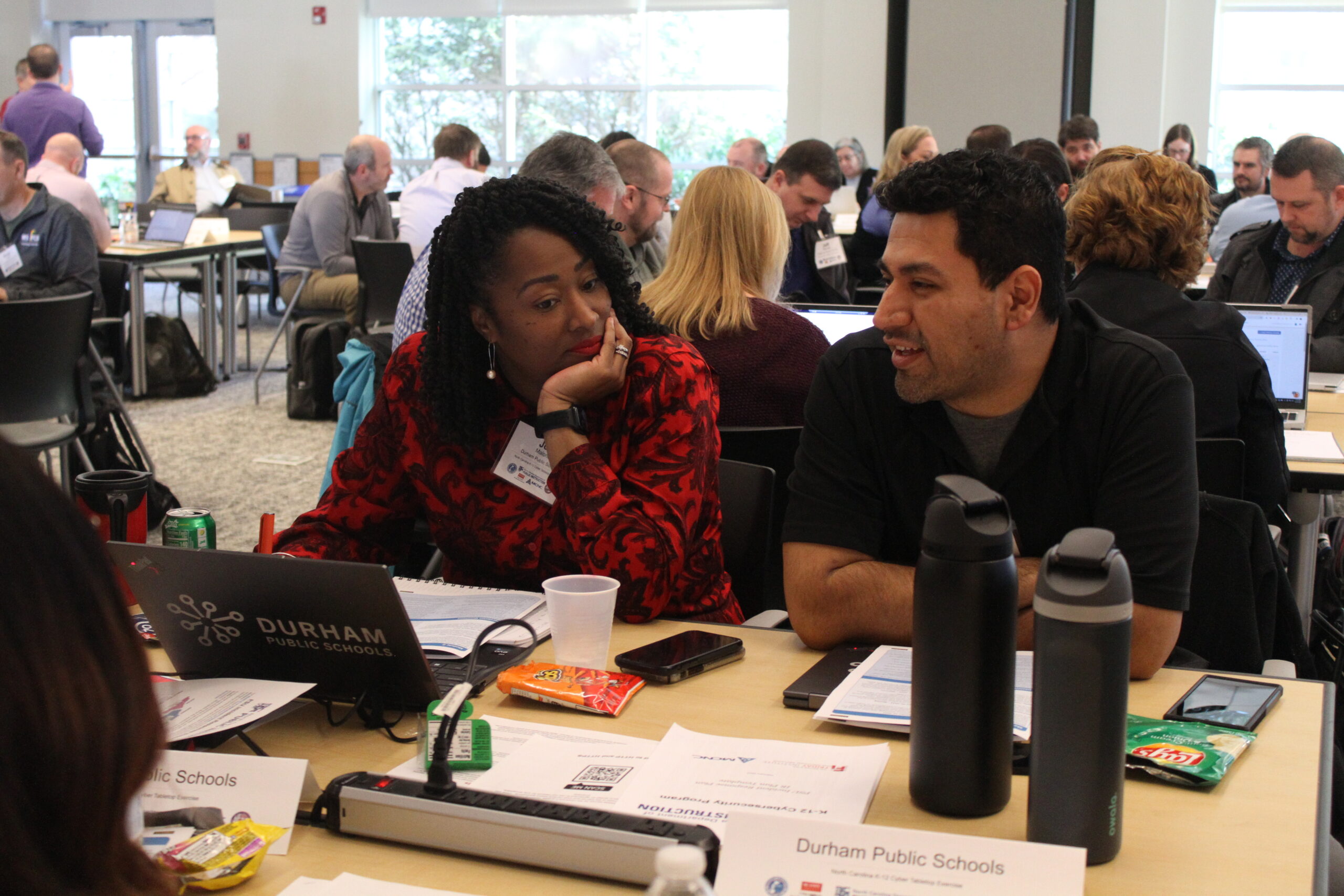New Report Reveals Value of Learning Differences MOOC-Ed
 Despite their passion for teaching and commitment to the field, educators around the world – with varying years of experience, teaching different subjects, at different levels, in a variety of contexts – are continually challenged to meet the diverse learning needs of their students. A new report suggests that the Learning Differences Massive Open Online Course for Educators (MOOC-Ed), provided by the Friday Institute for Education Innovation at NC State University, may help teachers around the world advance their knowledge of learning differences and better meet the learning needs of their students.
Despite their passion for teaching and commitment to the field, educators around the world – with varying years of experience, teaching different subjects, at different levels, in a variety of contexts – are continually challenged to meet the diverse learning needs of their students. A new report suggests that the Learning Differences Massive Open Online Course for Educators (MOOC-Ed), provided by the Friday Institute for Education Innovation at NC State University, may help teachers around the world advance their knowledge of learning differences and better meet the learning needs of their students.
Written by researchers on the Friday Institute’s evaluation team, What’s the Value of a Learning Differences MOOC-Ed? analyzes how participants found value in the course using a “value creation framework” developed by Etienne Wenger, Beverly Trayner, and Maarten De Laat (2011). They suggest that, in order to appreciate the richness of the value created by learning communities or networks such as MOOC-Eds, it is helpful to think about value creation in terms of cycles.
The authors, Dr. Sherry Booth and Suzanne Branon, found that much of the feedback they received from Learning Differences participants aligned with the framework’s five cycles, which are:
-
- Immediate value: activities and interactions that produce value in and of themselves, such as sharing stories, tips and ideas, posing interesting questions, making connections, or participating in collective reflection.
“I think hearing the student stories impacted me the most. I have many years of experience in working with students who struggle in a variety of ways, but to hear students so eloquently verbalize their feelings and relate their experiences reminds me of why I do what I do and that there is always room to improve.”
Participant response
-
- Potential value: activities and interactions that produce various forms of knowledge capital that have the potential to be realized later. Various types of knowledge capital – human capital, social capital, tangible capital, and learning capital – produced through members’ participation were clearly discernible in the data collected from MOOC-Ed participants.
“While I already knew a little about learning differences, what I have gathered from as a result of participating in this MOOC-ED makes me so much resourceful and confident to work more effectively and be more successful in my job. I find it more interesting and it makes me enthusiastic to help children who are having learning and communication issues.”
Participant response
-
- Applied value: participants use what they learned to change their practice. When asked on end-of-course surveys if they had attempted to make changes in their professional practice as a result of participation in the MOOC-Ed, 97% of educators answered “yes.”
“My discussions have been more informative – sharing my new knowledge when teachers bring up “that student.” I’ve been able to use this information to change perceptions and perspectives in dealing with challenging situations. Just today, a teacher and I discussed Wyatt – “I’m only disabled at school” – and how that does and should not happen.”
Participant response
-
- Realized value: what participants learn results in performance improvements of varying types. Examining realized value – actual improved performance – is especially relevant here as the long-term goal or outcome for the creators and funders of the Learning Differences MOOC-Ed is to help all students achieve success in K-12 educational settings. In particular, educators noted positive outcomes with students.
“I work in an after school program, and one of my middle school students has two paraeducators with him all day long. When he comes to our program, he’s alone and needs lots of attention and support… While he does still occasionally get upset when it’s time to go home, his behavior has been much better and he takes responsibility for his actions and his words when it’s time to leave. We developed a code word for when he needs to rethink his word choices to be more respectful and it’s made transitions much better.”
Participant response
-
- Reframing value: when shifts in perspective and practice lead to positive outcomes, learners may experience a profound reconsideration of strategies, goals, and even values. These redefinitions and major shifts can occur at the individual, collective, and even organizational levels.
“The most valuable aspect was rethinking my conception of learning differences. This course really brought home the need to take into account the unique learning profiles of ALL students, not just the “special ed” children. This is a very inclusive philosophy – and not the one with which I came to the course. The notion of designing instruction to the edges rather than for the average will inform my decisions from now on.”
Participant response
Despite criticisms of the traditional MOOC framework, these promising findings suggest that the Friday Institute’s innovative use of MOOCs for professional development hold potential for helping educators advance their expertise and improve professional practice.
The report was prepared for the Oak Foundation, which provided funding for the Learning Differences MOOC-Ed. Click here to read the full report.
Click here to view downloadable assets related to this report.
- Categories:

